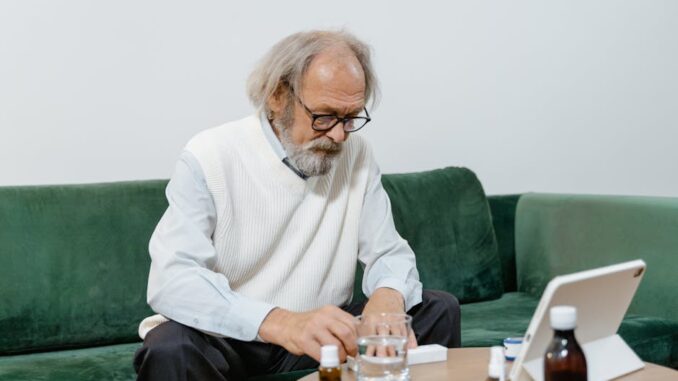
As the population ages, healthcare systems face increasing challenges in providing effective care for older adults. The University of Rochester Medical Center (URMC) is at the forefront of addressing these challenges through innovative approaches that prioritize comprehensive assessments and personalized treatment plans.
Comprehensive Geriatric Assessment (CGA): A Holistic Approach
URMC employs the Comprehensive Geriatric Assessment (CGA) to evaluate the multifaceted needs of older patients. This method considers physical health, mental well-being, functional abilities, and social circumstances, ensuring a thorough understanding of each patient’s unique situation. For instance, a patient with heart failure may also experience depression and live alone, factors that significantly impact their overall health and care needs.
Dr. Jennifer Muniak, a geriatrics educator at URMC, emphasizes the importance of CGA in adapting healthcare systems to the aging population. She notes, “Our population is aging, and older adults are interfacing with a health care system that was not designed for them.” By critically analyzing data and implementing quality improvement methods, URMC aims to tailor care to the individual nuances of each patient.
Personalized Care Plans: Tailoring Treatment to Individual Needs
Recognizing that a one-size-fits-all approach is inadequate, URMC develops personalized care plans for older adults. These plans are crafted through comprehensive assessments that evaluate physical, cognitive, and emotional well-being. Healthcare providers collaborate with patients and their families to understand their values, beliefs, and aspirations, ensuring that care plans are culturally sensitive and aligned with the patient’s goals.
This personalized approach is exemplified by the Age-Friendly Health System (AFHS) initiative at URMC. The AFHS focuses on four key elements: What Matters, Medication, Mentation, and Mobility. By addressing these areas, URMC aims to improve health outcomes and enhance the quality of life for older adults.
Integrating Technology: Enhancing Care Delivery
URMC leverages advanced technologies to improve geriatric care. Telemedicine allows healthcare providers to conduct remote consultations, reducing the need for travel and increasing accessibility for patients with mobility challenges. Additionally, remote patient monitoring tools enable continuous tracking of vital signs, facilitating early detection of health issues and proactive interventions.
Smart home technologies further support aging in place by enhancing safety and convenience. Devices such as voice-activated assistants and automated lighting systems help older adults manage daily activities and maintain independence. These technologies also provide peace of mind to families, knowing that their loved ones are supported by systems designed to detect emergencies and alert caregivers promptly.
Multidisciplinary Teams: Collaborative Care for Complex Needs
Addressing the complex needs of older adults requires a collaborative approach. URMC assembles multidisciplinary teams consisting of geriatricians, nurses, physical therapists, and social workers to provide comprehensive care. This team-based model ensures that all aspects of a patient’s health are addressed, from medical treatment to social support.
Dr. Thomas Caprio, associate professor of Medicine at URMC, highlights the significance of this approach: “This is an unprecedented opportunity for our region to support the development of a health care workforce with the unique skills needed to care for an aging population.” By integrating geriatrics with primary care and connecting with community-based supports and services, URMC aims to create a healthcare system that is responsive to the needs of older adults.
Community Engagement: Building Supportive Networks
URMC’s commitment to geriatric care extends beyond clinical settings into the community. The Geriatric Workforce Enhancement Program, supported by a $2.5 million grant from the U.S. Department of Health and Human Services, focuses on enhancing care and improving health outcomes for older adults in the Rochester and Finger Lakes region. This program aims to integrate geriatrics with primary care and establish links with community-based supports and services, fostering a supportive network for older adults.
Conclusion
Through comprehensive assessments, personalized care plans, technological integration, and collaborative team efforts, URMC is redefining geriatric care. These initiatives not only address the immediate health needs of older adults but also promote long-term well-being and independence. As the aging population continues to grow, URMC’s innovative approaches serve as a model for healthcare systems striving to meet the complex needs of older adults.
References
-
URMC Earns $2.5 Million HRSA Grant to Improve Geriatric Care. URMC Newsroom. (urmc.rochester.edu)
-
Aging Reimagined: Vital Care. URMC Newsroom. (urmc.rochester.edu)
-
Biden administration invests in geriatric care training. Axios. (axios.com)
-
UK clinics band together on geriatric care to ease strain. Financial Times. (ft.com)


The integration of smart home technologies to support aging in place is particularly compelling. How do you see the balance between leveraging these technologies for enhanced safety and independence versus potential privacy concerns for older adults?
That’s a great point! Striking the right balance is key. We’re exploring solutions like localized data processing and transparent data usage policies to address privacy concerns. The goal is to empower older adults while safeguarding their personal information. What other strategies do you think could help alleviate those concerns?
Editor: MedTechNews.Uk
Thank you to our Sponsor Esdebe
The emphasis on multidisciplinary teams is vital. How do you ensure effective communication and collaboration among these diverse specialists to avoid fragmentation of care for complex geriatric patients?
That’s a critical question! At URMC, we prioritize regular interdisciplinary meetings, shared electronic health records accessible to all team members, and standardized communication protocols. We’re also exploring the use of virtual platforms to facilitate seamless communication and information sharing, especially for patients in remote areas. What methods have you seen work well in your experience?
Editor: MedTechNews.Uk
Thank you to our Sponsor Esdebe
The Age-Friendly Health System initiative’s focus on “What Matters” is crucial. How do you incorporate patient-defined goals and preferences into the care plan, ensuring that treatment aligns with their individual values and priorities for quality of life?
Thanks for highlighting the “What Matters” component! We actively involve patients in setting achievable goals. It’s a continuous conversation, adapting as their needs and preferences evolve. We use tools like values clarification exercises to really understand their priorities, ensuring care aligns with what brings them fulfillment. What tools have you found useful?
Editor: MedTechNews.Uk
Thank you to our Sponsor Esdebe